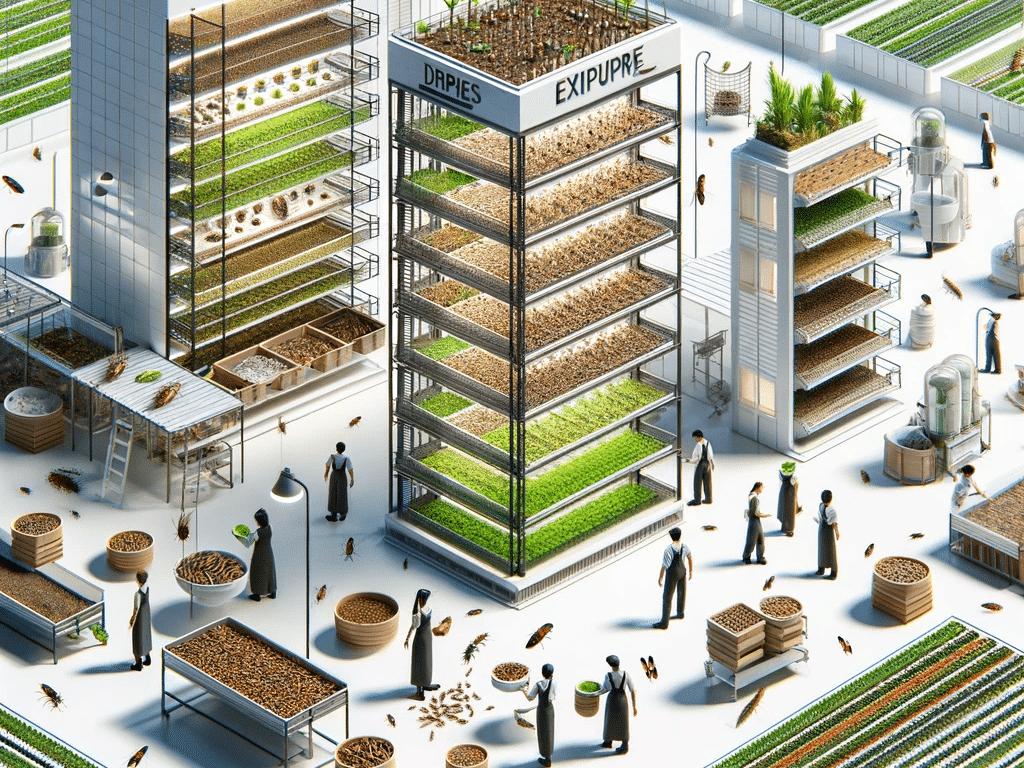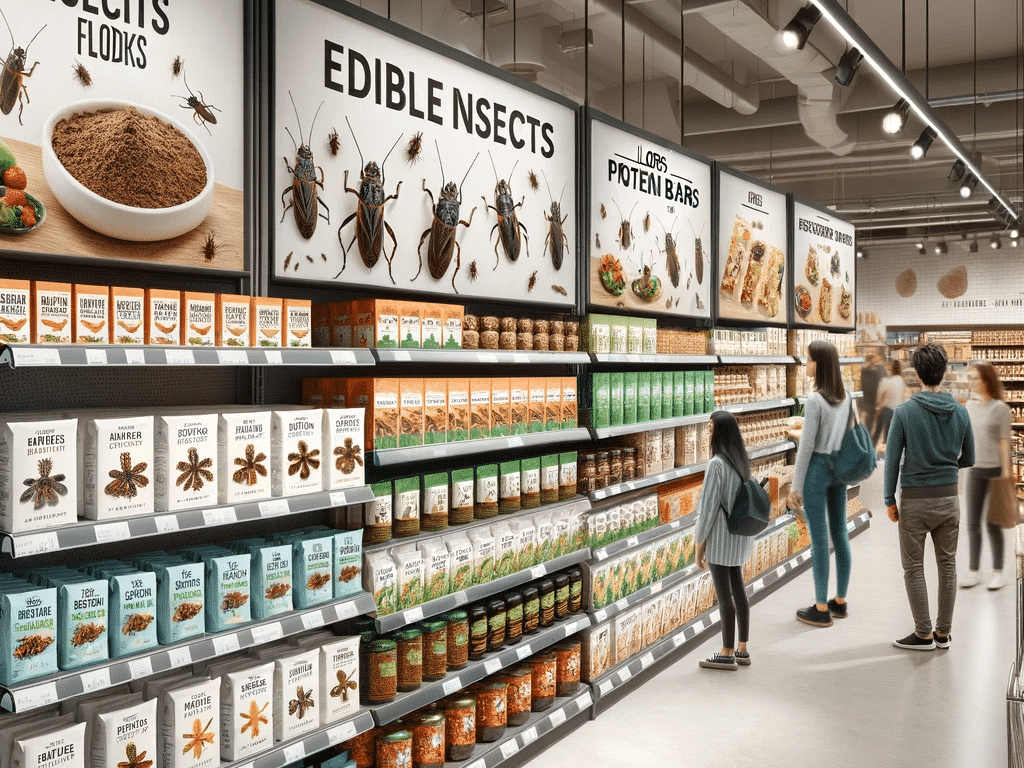Introduction to the Edible Insects Market
The edible insects market is transforming our approach to sustainable nutrition. This innovative market moves beyond traditional meat sources, positioning insects as a key solution to global food sustainability challenges. As environmental consciousness grows, so does the recognition of insects as a viable, eco-friendly protein source, changing long-standing perceptions and dietary habits.

Edible Insects Market Growth
The edible insects market, valued at $0.822 billion in 2020, is experiencing a significant surge and is projected to skyrocket to $3.606 billion by 2027, growing at a 23.51% CAGR. A global shift toward sustainable food sources and a broader acceptance of eco-friendly protein alternatives are driving this remarkable growth. The market’s expansion reflects a collective move towards environmental responsibility and a willingness to embrace novel, sustainable food solutions.
The Benefits of Edible Insects
Edible insects stand out as a unique combination of nutritional richness and environmental sustainability. They are not only a source of high-quality protein but also provide essential amino acids, Omega-3, and iron. Their minimal environmental impact makes them an attractive alternative to conventional meat sources. It is characterised by low greenhouse gas emissions and efficient feed-to-protein conversion rates. This blend of nutritional value and environmental stewardship is driving its integration into diets worldwide. This is positioning it as a key player in sustainable food practices.
Global Acceptance of Edible Insects

In the realm of global food trends, Asia Pacific nations such as China, Thailand, and Japan are pioneers in the consumption of edible insects. These countries have a rich history of incorporating insects into their diets, now coupled with modern sustainability efforts. Europe is following suit, with a growing interest in insect-based foods, driven by increased awareness of sustainable diets and advances in food technology. This global acceptance of edible insects is not just about adopting a new food source. It represents a paradigm shift in international food cultures and practices, embracing sustainability and innovation.
Overcoming Market Challenges
The edible insects market faces its share of challenges, including overcoming consumer misconceptions and navigating complex regulatory landscapes. Despite these hurdles, the market is on a positive trajectory. This is being underpinned by increasing consumer acceptance and technological advances in insect farming and processing. These developments are key to overcoming the barriers. They are paving the way for the market’s continued growth and success in establishing insects as a mainstream, sustainable food source.
Conclusion: Edible Insects Market

The ascension of the edible insects market from a niche segment to a global force is a testament to our capacity for innovation in food sources. In a world grappling with how to feed a growing population sustainably, edible insects offer a promising solution. Their role in providing nutritious, environmentally friendly protein aligns with the urgent need for sustainable food systems. This market is more than just a trend. It is an important step towards a future where our food choices support both our health and the health of our planet. Incorporating edible insects into our diets is a crucial step in our journey towards sustainable diets. It makes them an essential part of the solution to global food sustainability challenges.
Learn more about the dynamic edible insects market and its role in sustainable food practices.
- Top 10 Cheapest Countries to Retire Without Giving Up Modern Comforts - July 7, 2025
- The 12 Nations With the Strictest Entry Requirements In 2025 - July 6, 2025
- 7 Nations That Have Gone Completely Cashless - June 30, 2025

Matthias Binder is a skilled author and digital storyteller with a focus on travel journalism, environmental issues, and modern home design. With a background in communications and a passion for global cultures, Matthias crafts engaging narratives that blend real-world exploration with thoughtful analysis and visual flair.
His writing reflects a deep interest in how climate change shapes our lives and lifestyles—from sustainable travel practices to eco-friendly living environments. Known for his clear, approachable voice and sharp editorial instincts, Matthias delivers content that resonates with readers seeking both inspiration and substance.
Whether reporting from remote destinations, breaking down sustainable design trends, or spotlighting innovative green initiatives, Matthias brings a global perspective and an eye for detail to every piece. He regularly contributes to web platforms and editorial projects that aim to foster awareness, creativity, and conscious living.
For any feedback message me at [email protected]
